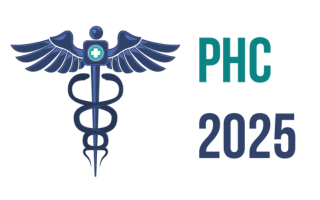PHC 2025

University of Washington, USA
Abstract:
Point-of-care molecular diagnostics is a fast-growing field with a global market size of $US 8 billion in 2022. In this talk, I will introduce my research program with a primary focus on developing simplified, low-cost molecular diagnostics to address the unmet needs in underserved, under-resourced communities. I will briefly outline ongoing projects and opportunities to leverage Rice’s strength in hardware and software development, as well as DNA computational design and analysis, to innovate diagnostics and translate them to improve the health in Texas, nationally, and globally. Lastly, I will share a case study on the journey of diagnostic development: from identifying a need to deploying a diagnostic platform for tackling antimicrobial resistance (AMR). AMR poses a serious threat to global public health, particularly in diseases like tuberculosis (TB) and HIV, where long-course treatments are vulnerable to low adherence and misuse. Without AMR screening, treatments are guesswork, potentially limiting the benefits for infected individuals. Increased access to AMR diagnostics can address this issue by providing clinicians with actionable information for personalized treatment. In response, we developed the "OLA-Simple" technology platforms, focusing on detecting a common AMR biomarker, single nucleotide polymorphisms. Our initial prototype, the OLA-Simple kit for HIV, demonstrated higher sensitivity than Sanger sequencing and favorable comparison to next-generation sequencing. Notably, through a partnership I established with UW ECE, we created and deployed a human-in-the-loop automation for OLA-Simple workflow, enabling first-time users in the US and Kenya to perform the assay and achieved a 97% accuracy. Achieving this milestone involved multiple technology iterations, incorporating user feedback and insights from key opinion leaders identified during the NSF I-Corps customer discovery program. To ensure real-world impact, we identified early adopters and formed partnerships with clinical collaborators at WHO-certified HIV laboratories and Harvard University for implementation in Mexico and Nigeria, respectively. The OLA-Simple technology has gained recognition from The Lancet and The World Health Organization for its significant contributions to the field of HIV drug resistance.
Biography:
Dr. Nuttada Panpradist (www.nuttadapanpradist.com) is honored as the recipient of the prestigious 2024 Rice 360° Innovation and Impact in Global Health Award, recognizing her commitment to advancing equitable and high-quality healthcare through innovative solutions in global health. With Ph.D. at the University of Washington (UW) bioengineering, her research in the Lutz laboratory focuses on pioneering molecular chemistries and workflows for diagnostics in resource-limited settings. Notable projects in Dr. Panpradist's portfolio underscore her translational contributions, including the development of diagnostics for HIV drug resistance, TB infection, adherence to TB treatment, and COVID-19, with the latter licensed for commercialization. In an effort to foster the intersection of bioengineering and global health, Dr. Panpradist transitioned to a post-doctoral appointment at the UW School of Public Health, becoming the first bioengineer at the Global Center for Health of Women, Adolescents, and Children. Currently, she serves as the Principal Investigator on collaborative projects across various UW departments and holds honorary positions at international institutions in Kenya and Thailand. Envisioning her future lab as a hub for innovative, inclusive, and sustainable point-of-care molecular diagnostics, Dr. Panpradist integrates impactful research with transformative teaching for global outreach, prioritizing sustainability in diagnostic technologies for global health equity. Beyond her research, Dr. Panpradist is a serial award-winning mentor, having guided nearly 30 students from diverse backgrounds. She is deeply committed to diversity, equity, and inclusion (DEI) initiatives, co-developing the White House-funded NorthStar Peer Navigation Program and actively participating in DEI committees during her Ph.D. tenure. Her mentorship extends to high school students through programs like Making Connections, introducing them to educational and career opportunities. Dr. Panpradist's commitment to DEI extends globally, where she promotes inclusive and ethical biomedical research. Her upcoming role on the Academic Editorial Board of the PLOS Global Public Health journal reflects her dedication to advancing decolonization and diversity in academia.
